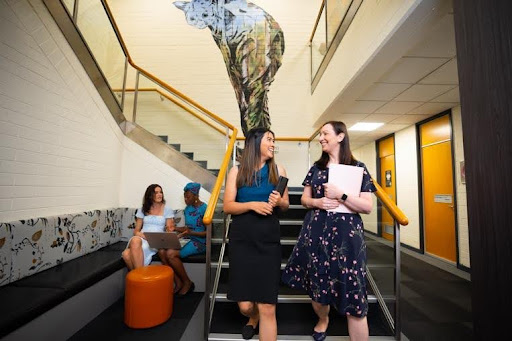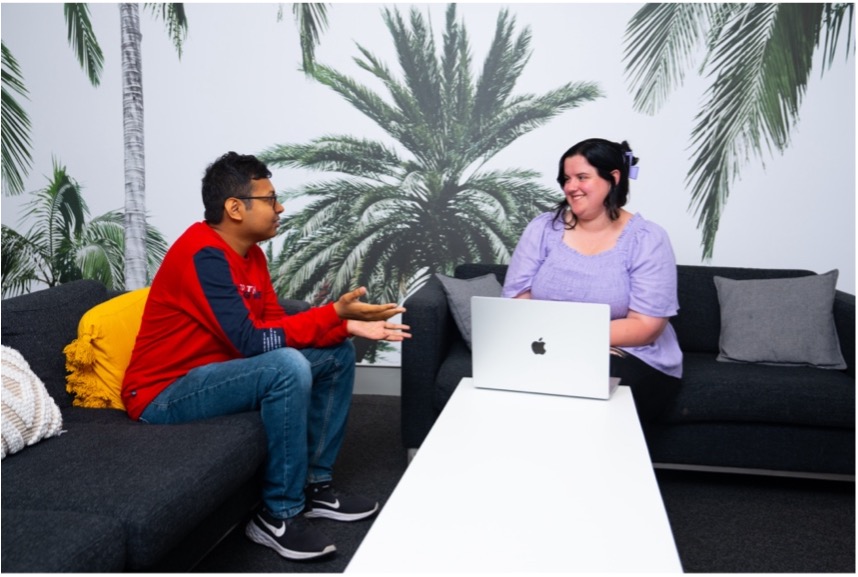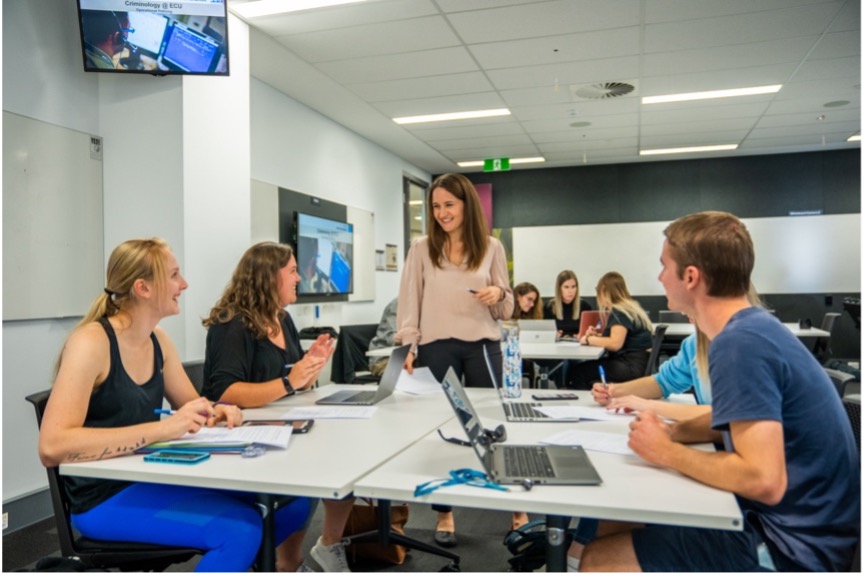
By engaging with our students, we aimed to gain a clearer understanding of their needs and preferences regarding course design, assessments, learning modes, support services, and overall wellbeing.

In September 2024, we conducted a series of half-day workshops, both in person and online, as part of our ongoing commitment to student-centred learning and curriculum transformation.
These workshops, titled “Your Educational Experience,” were designed to gather invaluable feedback directly from our students on various aspects of their learning experience. By engaging with our students, we aimed to gain a clearer understanding of their needs and preferences regarding course design, assessments, learning modes, support services, and overall wellbeing.
Understanding Student Perspectives
Building on feedback gathered from ECU students about the use of artificial intelligence in learning and life in 2023, we facilitated these workshops to dive deeper into students’ experiences and expectations. The workshops were a crucial component of our efforts to update curriculum and assessment policies and procedures. Over the course of these sessions, students from diverse backgrounds shared their thoughts on how, where, and when they preferred to learn. They provided insights that are now shaping our approach to designing educational experiences that align more closely with their realities.
Key Focus Areas and Findings
The discussions during the workshops revolved around several key areas:
- Course Design and Learning Preferences
Students were asked about their ideal course design and what they would like to learn. They shared examples of their most engaging learning experiences and discussed the types of interactions with teachers and peers that they found most beneficial. Students were also asked to reflect on when they felt disengaged and what factors contributed to these feelings. - Feedback, Assessment, and Grading
These questions focused on the students’ perspectives on grading and feedback. They were asked whether grades mattered to them and why. Students were also invited to consider how they would feel if universities reduced the emphasis on grades in favour of more personalised feedback. Additionally, they were asked to share their experiences with feedback that had significantly helped or hindered their learning. - The Use of Generative AI and Academic Integrity
Students were asked about their use of AI tools and how they believed these could be incorporated into their learning. They were also queried about any concerns they had regarding the use of AI at university and whether they had observed any inappropriate use. Finally, students discussed the AI skills they thought were necessary for their future careers and how the university could help address their concerns about AI. - Learning Preferences Related to Time and Schedule
The workshops included questions about students’ preferred times for studying and how they would ideally structure their weekly schedules. Students were asked about their preferences for academic term structures, such as semesters, trimesters, or intensive blocks, and whether they would be interested in an optional third semester over summer. - Learning Environments and Modalities
Students were asked to consider what influenced their decision to attend classes on campus versus studying online. They discussed the types of activities they preferred to do in each setting and whether they favoured real-time online content or pre-recorded materials. They were also asked about what a university could offer to encourage them to come to campus more regularly and to describe their ideal learning environment, including any helpful technologies or tools. - Learning Support Needs
Questions in this theme focused on understanding how students learn best and the types of support they find most valuable. They were asked about their experiences with academic support and where they typically sought help when struggling with content. Students were also invited to share their thoughts on additional resources or support services they believed would be beneficial, especially in light of the availability of generative AI. - Other Support Services
Students were asked about any barriers they faced in accessing support services, such as career advice or counselling. They discussed what could be done to make these services more accessible and relevant to their needs during their studies. Additionally, they shared suggestions for skills or resources that could help them outside of their academic life, such as basic finance skills or time management strategies. - Wellbeing and Belonging
The final theme focused on students’ wellbeing and sense of belonging at the university. Students were asked to reflect on what they loved most about their experience at ECU and to identify the main sources of stress during their studies. They were also asked about their social connections at the university and how these relationships had impacted their confidence and sense of belonging. Lastly, students discussed what could be done to enhance their sense of community and belonging, both within their specific cohort and across the wider university.

Informing Future Policies and Practices
The insights gained from these workshops have been instrumental in shaping ECU’s curriculum transformation initiatives. By listening to our students, we have identified several areas where we can improve and adapt our policies, procedures, and practices to better support their learning journeys.
As we move forward, ECU is committed to incorporating these insights into our curriculum and assessment frameworks, ensuring that our educational offerings remain contemporary, relevant, and responsive to the needs of our students. The feedback from the “Your Educational Experience” workshops has provided a solid foundation for these ongoing efforts, and we look forward to continuing to engage with our students as we evolve together.
Acknowledging Our Students’ Contributions
We extend our sincere gratitude to all the students who participated in these workshops and shared their experiences and insights. Your voices are vital to shaping the future of education at ECU, and we are committed to ensuring that your feedback leads to meaningful change.
Related Articles
Explore related articles and stay informed on the latest in Learning and Teaching at ECU.